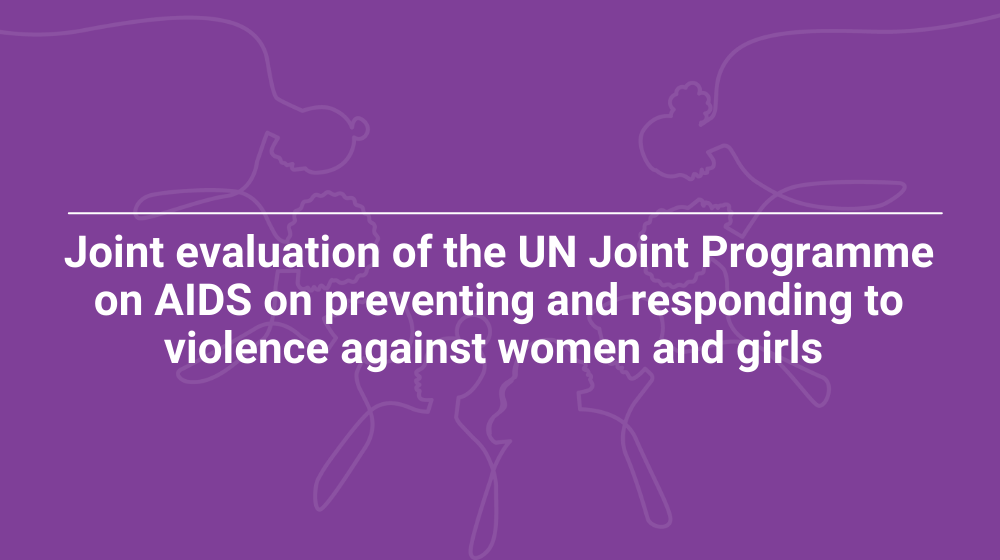The Evaluation Offices of UNAIDS (chair), UNFPA, UNESCO, UNHCR and ILO jointly managed an independent evaluation of the UN Joint Programme on AIDS on preventing and responding to violence against women and girls in all their diversity.
The evaluation assesses the Joint Programme’s accountability to end violence against women and girls and the bi-directional nature of violence against women and girls and HIV, where violence against women and girls can be an indirect and direct factor for increased HIV risk, and violence can be an outcome of HIV status and disclosure.
The evaluation combined global consultation and document review with nine in-depth country case studies. Of note, the evaluation set up a group of women in their diversity to guide the process, input into key deliverables, and be part of the in-country data collection. These were women well-networked nationally and/or embedded in national organizations of women living with HIV and/or national organizations addressing violence against women.
The evaluation found that the Joint Programme is supporting countries to work collaboratively to some extent with women’s and relevant civil society networks in addressing gender equality, HIV and violence against women and girls, however inadequate attention is given to transformative approaches to address the structural and root causes of gender inequality, HIV and violence against women and girls.
The evaluation provides strategic and operational recommendations for the Joint Programme. Its evidence and lessons learned also contribute to the implementation of the UNFPA strategic plan, 2022-2025, and towards ending the AIDS epidemic and violence against women and girls.
